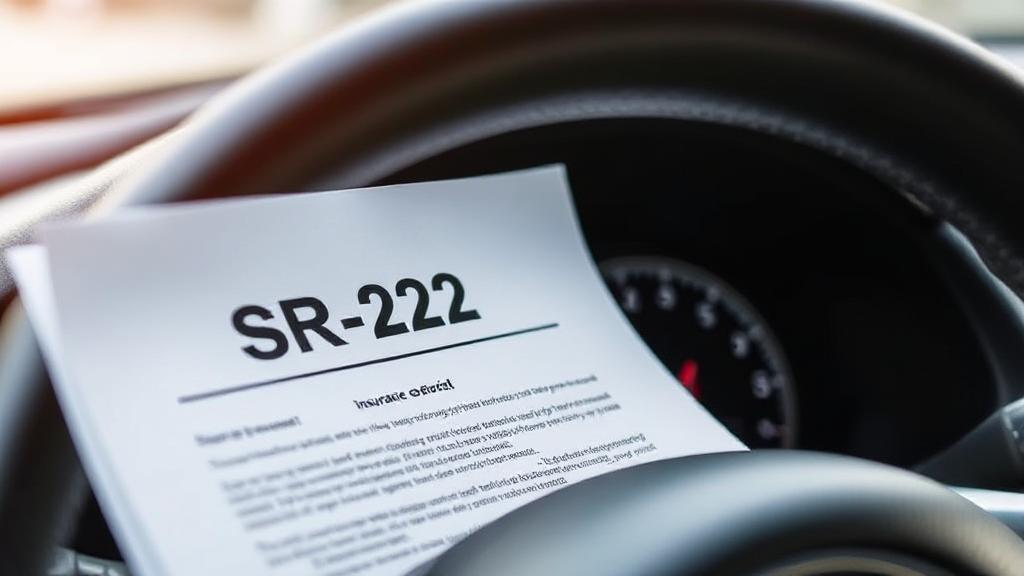What is SR-22 Insurance?
SR-22 insurance is not actually a type of insurance, but rather a certificate of financial responsibility required by the state for high-risk drivers. This certificate, where "SR" stands for "Safety Responsibility," is filed by your insurance company with your state's Department of Motor Vehicles (DMV) to prove that you carry the minimum required auto insurance coverage.
How Does SR-22 Work?
When a driver is required to have an SR-22, their insurance company must file the form with the state's DMV. This filing serves as proof that the driver has the necessary liability coverage. The SR-22 typically requires continuous coverage monitoring, and any lapse can result in serious consequences.
Common Reasons for Needing SR-22
- DUI or DWI convictions
- Multiple traffic violations in a short period
- Driving without insurance
- Being involved in an accident while uninsured
- License suspension or revocation
- Serious moving violations
The Filing Process
- Contact an insurance provider that offers SR-22 filing
- Pay the filing fee (typically $15-$50)
- Maintain continuous coverage for the required period
- Wait for confirmation from your state's DMV
Important: Not all insurance companies offer SR-22 filing services. Major providers like Progressive and GEICO typically do offer this service.
Coverage and Costs
SR-22 insurance covers the same types of damages as regular car insurance, including bodily injury, property damage, and liability. However, costs are typically higher due to the high-risk nature of the drivers who require it.
Average Premium Increases
| Violation Type | Typical Premium Increase |
|---|---|
| DUI/DWI | 80% - 100% |
| Reckless Driving | 60% - 80% |
| Multiple Violations | 40% - 60% |
State-Specific Requirements
Not all states require SR-22 filing. Eight states don't require SR-22:
- Delaware
- Kentucky
- Minnesota
- New Mexico
- New York
- North Carolina
- Oklahoma
- Pennsylvania
Some states may require alternatives:
- FR-44: Required in Virginia and Florida, similar to SR-22 but with higher liability requirements
- SR-21: Proof of insurance for a specific incident
- SR-50: Indiana's version of financial responsibility filing
Duration Requirements
Most states require drivers to maintain SR-22 certification for three years, though this can vary from one to five years depending on the state and violation. The period typically starts from your license reinstatement date.
Best Practices for Maintaining SR-22
- Pay your insurance premiums on time
- Drive safely and avoid violations
- Keep track of your SR-22 expiration date
- Notify your insurance company if moving to another state
- Consider taking defensive driving courses
- Work with a reputable insurance provider
Warning: If your insurance lapses while under SR-22 requirements, your insurance company must notify the state, which could result in license suspension.
For more detailed information about SR-22 requirements in your state, visit your state's Department of Motor Vehicles website, the Insurance Information Institute, or consult with a licensed insurance agent. You can also find licensed insurance companies through the National Association of Insurance Commissioners.
